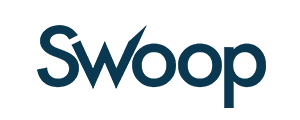
Compare business loans in Australia
You can get a business loan with or without a deposit. The better your business credit score, the lower your interest rate.
We’re reader-supported and may be paid when you visit links to partner sites. We don’t compare all products in the market, but we’re working on it!



We update our data regularly, but information can change between updates. Confirm details with the provider you're interested in before making a decision.
Compare up to 4 providers
- How do business loans work?
- How much can I borrow?
- What business financing options are available?
- How do I determine what type of loan my business needs?
- How do I compare business loans?
- Compare business loan interest rates
- How will lenders judge my business loan application?
- How do I apply for a business loan?
- How do I prepare my business loan application?
- Can I get a business loan with no sales?
- Frequently asked questions
- *The products compared on this page are chosen from a range of offers available to us and are not representative of all the products available in the market. There is no perfect order or perfect ranking system for the products we list on our Site, so we provide you with the functionality to self-select, re-order and compare products. The initial display order is influenced by a range of factors including conversion rates, product costs and commercial arrangements, so please don't interpret the listing order as an endorsement or recommendation from us. We're happy to provide you with the tools you need to make better decisions, but we'd like you to make your own decisions and compare and assess products based on your own preferences, circumstances and needs.
Alternative finance options for small businesses during the COVID-19 outbreak
If your business has been affected by COVID-19, there are a number of options available to help you financially:
The banks are offering various relief measures to help small businesses during this time of uncertainty. This includes measures such as payment deferrals, fee and interest waivers and discounted rates on business loans.
The government is employing various tax relief measures, including refunds, deferrals and waivers, to help businesses retain staff and purchase new equipment during this time.
Looking to inject some capital into your business? There are several types of business loans you can apply for. The eligibility criteria will vary from lender to lender and loan type. Lenders will consider the age of your business, its credit profile and turnover in your application.
What's the latest news on business loans for September 2021?
NAB launches Islamic business financing product
Last week, National Australia Bank (NAB) announced Australia's first foray into Islamic business finance. The product is aimed at Muslim customers, who make up about 2.6% of the country's population.
It follows Islamic law requirements, where interest is neither charged nor earned. In line with this, the product will structure the loan as "a lease where 'rent' and 'service fee' are paid instead of 'interest'," NAB explains.
The product will cater to transactions over $5 million for commercial property development and construction purposes.
Australia's first sustainability-linked loan for agriculture
Stockyard Group has taken out a sustainability-linked loan from the Commonwealth Bank of Australia (CBA). It is Australia's first sustainability-linked loan for the agriculture industry.
The aim is to meet agreed performance targets. These targets relate to reducing greenhouse gas emissions, improved animal welfare, and workplace health and safety innovations.
In exchange for meeting these targets, the business will receive a discount on interest rates.
The aim of the loan is to reduce the environmental and social impacts of doing business. It does this by offering finance tied to achieving sustainable goals.
CBA adds that this form of finance can be applied across all sectors and ecosystems. If your business is looking for a sustainable agribusiness loan, this could be a financing option for you.
How do business loans work?
Businesses can either be lent a lump-sum payment or a revolving line of credit, which is repaid, with interest, over an agreed term (generally anywhere from three months to five years).
There are several types of business loans. The business loan best suited to you will depend on what your business needs. For instance, you could take out an equipment loan if you wish to purchase business equipment.
You can use a business loan for a range of reasons. This includes a short-term cash flow boost, to expand and grow your business, to buy commercial real estate, vehicles or equipment for your business.
Loan amounts range from $5,000 to $100,000,000. Some lenders also don't have limits on their borrowing amounts. Most business loans have a fixed interest rate, but there are loans with variable rates. You'll need to make repayments on a daily, weekly or monthly basis.
Business loans can be either secured or unsecured loans.
- Secured business loans. For these loans, you can use an asset as security against the loan. The asset is generally residential or commercial property. In return, you may receive lower interest rates. You may also be able to borrow larger amounts and have a higher chance of approval. Some lenders don't have a limit on how much you can borrow with this type of loan. How much you qualify for will depend on the value of your asset.
- Unsecured business loans. With an unsecured business loan, you don't need to use an asset as loan security. However, as there is no security, these loans are considered riskier. You may be offered higher interest rates and the loan amounts may be lower. Your chances of approval may also be lower. This type of loan is suitable for businesses with good credit but no assets of value. Or you could apply for this loan if you don't want to risk personal or company property.
A variable interest rate will change over time. It can either increase or decrease. The changes are influenced by the official cash rate set by the Reserve Bank of Australia (RBA). It also changes according to movements in the financial market.
As the rate changes, the amount of interest payable on the loan will also change. This means that the amount you pay in interest could change from one repayment to the next.
A fixed rate, as the name suggests, is when your interest rate is set or fixed. It remains constant over the life of your loan. This means that the repayment amount will remain the same every month.
How much can I borrow?
You can get a business loan from as little as $5,000 up to $100,000,000. How much your business can borrow will depend on the following:
- The lender
- The type of business loan you're applying for
- Your annual turnover
- The business purpose of the loan
- Your personal and company credit rating
- How long your business has been trading
- Whether you have a deposit/security
Smaller loans require less documentation and may have less strict lending criteria. For larger business loans, you will need to provide more documentation. This can include a detailed business plan, financial statements, proof of revenue, and an asset or cash security or deposit. The cost of these loans will also vary. To get an idea of what you can expect to pay, you can use our business loan calculator.
What business financing options are available?
Business finance comes in two forms: debt finance and equity finance.
Debt finance is offered by banks, credit unions or business lenders. It involves receiving a loan from a lender.
Equity finance is when someone invests money into your company in return for shares.
There are a range of short-term and long-term business debt finance options available. They include:
Is your business eligible for a loan?
Age of the business
You'll usually need to have been operating for at least six months to a year for most unsecured business loans offered by alternative lenders and banks, but some do offer unsecured startup finance. Invoice factoring and equipment loans have less stringent criteria on business age, but you'll need to have been operating for at least one year for business overdrafts or lines of credit.
Turnover
Your business may need to be making a certain amount of turnover in order to be eligible for a loan. This revenue may be monthly or yearly and can range from $50,000 to $200,000+ p.a. Other lenders simply require you to connect your business's accounting software or financials as part of the application process so they can calculate a loan your business can afford.
Credit profile
The lender may check the personal credit histories along with the company's credit (unless you're a startup). If the business has unpaid defaults or tax debt, you may need to find a bad credit business loan. However, most invoice financing companies do not require perfect credit histories.
ABN/ACN
You'll need to have an Australian Business Number (ABN) or Australian Company Number (ACN) to qualify for any form of business finance.
Each loan type has its pros and cons. We've compared 10 types of business finance to help you find a loan that suits you.
Business finance is split into two main categories: debt finance and equity finance. Equity finance is provided by an owner or an external investor, whereas debt finance is provided by a bank, credit union or business lender. Below, you can find out more information about the different types of short-term and long-term business debt finance that are available.
| Type of loan | Pros | Cons |
|---|---|---|
| Business line of credit | ✅ Flexible source of funds you can access when needed ✅ You only need to repay the funds you use | ❌ Funds are expected to be repaid sooner, usually monthly |
| Short term business loan | ✅ Lenders generally approve and fund application within one day ✅ Useful for capitalising on emerging business opportunities ✅ Can cover cash-flow shortfalls | ❌ Higher rates and fees ❌ Usually require daily or weekly repayments |
| Business credit card | ✅ Separates your personal and business spending ✅ Complimentary extras designed for businesses ✅ Builds business credit | ❌ Expensive fees ❌ Interest charges can also apply ❌ Personal liability options can expose you to legal issues |
| Invoice financing | ✅ Doesn't require ongoing repayments ✅ No interest rates or penalty fees ✅ Provides predictable cash flow | ❌ Funding limited to size of invoices ❌ Business is still responsible for outstanding invoices |
| Business vehicle finance | ✅ Possible tax benefits ✅ Flexible repayments | ❌ Can require an accountant to handle tax benefits ❌ Not all options allow ownership of the vehicle |
| Equipment finance | ✅ Wide range of options ✅ Helps grow or keep your business running ✅ Flexible repayments | ❌ Can be difficult to choose an option |
| Business overdraft | ✅ Gives you access to extra funds when you need it most ✅ Flexible repayments ✅ Has a wide range of uses | ❌ Tend to charge higher interest rates and fees |
| Fully-drawn advance | ✅ Flexible terms and a variety of options ✅ Predictable and consistent repayments | ❌ If market interest rates go down, you may pay more interest than necessary |
| Cash-flow lending | ✅ Offers the benefits of a secured loan without needing to offer assets as security | ❌ Typically only available to businesses with good credit ratings |
| Trade finance | ✅ Designed for domestic and international trades (currency or stock) ✅ Packaged service that includes financial technology, transaction services, risk management and advisers | ❌ Typically only available to businesses with good credit ratings ❌ Can only be used for trading purposes |
How do I determine what type of loan my business needs?
To work out which type of finance is the right fit for your business, consider the following questions:
Why does your business need the loan?
Are you looking to start a new business from scratch, upgrade your equipment or overcome a cash flow shortage? For example, if you're looking to invest in new business equipment, you'll want to consider your equipment finance options.
What stage is your business at?
Our guides to business borrowing can help you understand your business needs and finance options, regardless of whether you're a startup, early-stage business, going through a period of high growth, running an established business, reinvigorating a stagnant business or looking to turn around a business in decline.
What's the state of your business finances?
The current financial performance of your business will not only affect the type of funding you need, but also your ability to qualify for different types of loans. Your credit history will also affect the range of financing options you are able to access.
What industry is your business in?
The industry you're in also affects your funding needs and finance options. For example, a retail store will have different financing requirements to a microbrewery, which will have different needs to a beauty salon.
Once you've answered these questions you'll have a better idea of which type of finance is right for you. Then it's time to start comparing the different loans and sources of funding available.
How do I compare business loans?
You first need to work out what type of loan your business needs. You can then start comparing lenders and products. Here's what you need to keep in mind while comparing:
- Eligibility criteria. Check the lender's criteria and see if you meet them. This can help you narrow down your choices and find a loan you can apply for. If you don't meet the eligibility criteria, you shouldn't apply for the loan. Every loan application and rejection will appear on your company's credit file. This could downgrade your score. Click the "More info" button on the comparison table to find out the eligibility criteria of each lender.
- Cost. What can your business afford? Look at your income and expenses. How much can you comfortably repay without straining the cash flow of your business? If it's a loan for a startup, you'll need to rely on cash-flow projections.
- Interest rates and fees. After working out what you can borrow, you should start comparing the rates and fees of loan products. With some loans, the interest rate may be low but additional fees high. All these costs add up, so be sure to include both interest rates and fees in your calculations. Comparing can help you find the best loan product for your business.
- Repayment terms. Which repayment terms suit your business's cash flow? Lenders offer repayment terms with varying degrees of flexibility. Some may allow you to repay the loan daily, weekly or monthly. Find a loan product that gives you the flexibility you need to manage your business.
Compare business loan interest rates
Interest rates vary between the types of business loans. We've compared interest rates between different types of loans and loan amounts. We've also included a brief on what the loan is suited for.
| Type of loan | Suited to | Interest rate | Loan amounts | More info |
|---|---|---|---|---|
| Non-bank business loans | Businesses looking for a more flexible option outside of traditional banks. | 8.30% to 40.00% | $2,000 to $10,000,000 | Read guide |
| Unsecured business loans | Businesses that aren't able to offer assets as security. Interest rates can be higher compared to a secured business loan. | 8.30% to 40.00% | $2,000 to $10,000,000 | Read guide |
| Secured business loans | Businesses that own assets that can be used as security e.g. property, vehicles, equipment. | 9.90% to 36.00% | $5,000 to $10,000,000 | Read guide |
| Working capital finance | Short-term funding to allow the business to keep running day to day. | 2.59% to 40.00% | $2,000 to $10,000,000 | Read guide |
| Small business loans | Businesses making at least $100,000 per year that need a loan. | 2.59% to 40.00% | $2,000 to $7,000,000 | Read guide |
| Invoice financing | Improving cash flow for businesses that have outstanding invoices. | Percentage of the invoice amount | $10,000 to $150,000,000 | Read guide |
| Commercial loans | Funding commercial operations that can help grow and develop the business. | 2.59% to 40.00% | $2,000 to $7,000,000 | Read guide |
| Equipment finance | Funding the purchase of essential equipment or machinery. | 2.59% to 40.00% | $2,000 to $10,000,000 | Read guide |
| Vehicle finance | Business owners looking to purchase a car for the business. | 9.90% to 35.00% | $5,000 to $10,000,000 | Read guide |
| Fixed-term business loans | Borrowing larger amounts that are repaid over a consistent schedule. | 2.59% to 40.00% | $2,000 to $10,000,000 | |
| Bad credit business loans | Business owners with a below-average personal credit score. | 2.59% to 40.00% | $2,000 to $10,000,000 | Read guide |
| Supply chain finance | Buying high-value goods from suppliers that will have a significant impact on cash flow. | 2.59% to 40.00% | $2,000 to $10,000,000 | Read guide |
| Business line of credit | Businesses that need a flexible source of funds that can be accessed when needed. | 2.59% to 29.95% | $2,000 to $5,000,000 | Read guide |
| Personal loans | Startups or businesses that don't meet the requirements for a business loan. | 5.59% to 29.99% | $2,000 to $100,000 | Read guide |
How will lenders judge my business loan application?
To be eligible for any form of business finance, your business will need to have an Australian Business Number (ABN) or an Australian Company Number (ACN).
Lenders will judge your loan application based on the risk profile of your business and its ability to repay the loan. They will consider the following:
- The age and turnover of your business. Startups usually find it harder to get approved for a loan. This is because startups are new and risky, but there are lenders that offer unsecured finance for startups.
If your business is well established, you should find it easier to get a loan. For most unsecured business loans, your business needs to be older than six months. Invoice financing and equipment loans, meanwhile, are less strict when it comes to the age of your business. To qualify for an overdraft or line of credit, your business will need to have been in operation for at least a year.
Apart from age, the turnover of your business will also be considered. Lenders usually have a minimum requirement for monthly or annual turnover. It can range from $50,000 to $200,000+ p.a. They may also look at your turnover as an indication of what your business can afford to repay. Some lenders may ask you to connect your business's accounting software or financials as part of the application process. This is so that they can calculate what your business can afford.
- Credit profile. If your business is well established, lenders will check your company's credit score. They will also look into the company directors' personal credit scores. Assessing credit scores helps lenders determine if your business is a risky borrower.
If your business has unpaid defaults or tax debts, you may need to find a bad credit business loan. Most invoice financing companies do not require perfect credit histories.
- Credit card volume. Does your business receive credit card payments? The number or volume of such transactions will be an indication of your ability to repay the loan. Some new lenders will assume that you will use the income from these transactions to repay the loan.
- Accounts receivable. Lenders may also factor in your accounts receivable. That is, how much your customers owe you.
- Company structure. Lenders will look into your company ownership structure. They will also take into consideration how long your company has had this structure. Lenders may not finance your loan if your company has recently restructured, or if it's currently in the middle of restructuring.
- Existing debt. Does your business owe money to another lender? This will be considered as part of your application.
- Profitability. For various business loans, your business will need to be profitable.
- Tax debt. Depending on the kind of loan you need, owing money to the Australian Taxation Office (ATO) can negatively affect your application. However, you can look into a loan to specifically pay off tax debt if you want to reduce the risk of lenders declining your application based on outstanding ATO payments.
You can read more about the options your business has in these guides.
What is the easiest business loan I can apply for?
This depends on various factors including the lender (banks versus non-banks). Your business credit score and your business's financial position also play a role.
Banks have strict lending criteria. They will ask for a lot of documentation to support your application. This can make the application process lengthy and extremely difficult. Banks are regulated by both the Australian Securities and Investments Commission (ASIC) and the Australian Prudential Regulation Authority (APRA). As a result, they have to conform to the standards set by both authorities. Non-banks, meanwhile, have more relaxed rules around eligibility. They are regulated only by ASIC, so they can be more lenient when it comes to their eligibility criteria.
As a general rule, unsecured loans are the hardest loans to get. This is especially the case if the loan comes with low interest. This is because there is no security or collateral involved, making the loan riskier for the lender. You will only be considered if your business's credit profile is excellent. You will also need to make enough money to pay back the loan.
It is also difficult to get large business loans. The larger the loan, the higher the risk, even with security. Your business and revenue will need to be large, too. If you offer an asset as security, it will have to match the loan amount you're applying for. Your loan amount cannot exceed the value of your asset.
Smaller business loans should be easier to apply for. This is especially the case if the loan is secured. For instance, invoice financing is secured against your outstanding invoices. With vehicle finance, the vehicle you purchase can act as your asset. The same can apply for equipment finance.
Additionally, if you have a good and established relationship with your bank, you may be able to get a line of credit without too much hassle.
That said, you shouldn't apply for just any loan, even if it is easy to apply for. If it doesn't fulfil the needs of your business, you shouldn't apply for it. For instance, it is easier to apply for invoice financing than for an unsecured business loan. But if you don't need invoice financing, and if it won't help your business, you shouldn't opt for it.
How do I apply for a business loan?
To apply for a business loan, you will first need to:
🤔 Work out what type of finance you should apply for. This should be based on the needs of your business. For instance, do you need a line of credit loan or invoice financing?
💵 Work out how much you need to borrow and what you can afford.
🔓 Choose a secured or unsecured business loan.
📅 Choose your ideal terms. Would you like a loan with a 5-year term or a 30-year term?
🔎 Start comparing lenders and loan products. Don't forget to compare interest rates, fees and eligibility criteria.
✅ Select a lender.
🖨️ Organise and prepare the required documentation. This can include proof of identification, financial statements for the last three years, your business plan, financial forecasts and personal financial information.
📱 Apply.
How do I prepare my business loan application?
Applying for a loan is like entering a competition. You're up against many people and businesses who, like you, want a loan. You can improve your chances by making your application stand out. You also need to prove that your business has more value and potential than others.
You need to convince the lender that giving you a loan can help your company become more profitable, or that it is essential for its continued operation. You will also need to prove that you have enough revenue to pay back the loan.
Your loan application should answer the following questions:
- Why are you taking out a business loan? Your lender will want to know how the loan will contribute to the profitability of your business.
- How much are you borrowing? For lenders, how much you borrow tells them how risky the loan is. For you, it can help you select the right type of loan.
- How quickly do you need the money? What are your first and last payment dates? Will you need it as a lump sum or in multiple payments?
- How will you pay back the loan? This will help the lender determine the terms and conditions of the repayment. It will also give them an idea of whether or not your business has the cash flow to pay for the loan.
- What is the risk to the lender? Bigger loans are riskier for lenders, so they are harder to get approval for. The same applies for unsecured loans, especially if they have low interest rates.
Will I need a deposit for a business loan?
Some business loans require a deposit. This is known as loan security. With a deposit, the lender's risk of lending is reduced. In case you cannot pay back the loan, the loan security will cover the costs of lending to you.
There are three types of deposits. Most lenders only require one of the following:
- A cash down payment, as a percentage of the loan
- An asset collateral; for instance, residential or commercial property
- An income or your accounts receivable ledger (this only applies to invoice financing)
There is no set deposit amount. It will depend on the lender, the circumstances of your business, the loan amount and other factors.
For cash deposits, most lenders require at least 10% to 30% of the loan value. This money can come from savings, working capital, external investments or alternative means of finance.
For asset deposits, the deposit could be as much as 100% of the loan value. Assets can include residential or commercial property, or some form of equipment. With invoice financing, the deposit is around 110% to 120% of the loan value.
How do I know if the lender is legitimate?
This checklist can help you weed out scams and rogue lenders. You should check the following before applying:
- Do they have a licence? Do you know the name of the lender you're dealing with? Check it against ASIC's list of unlicensed companies. Don't deal with them if they are on this list. If they're not, look them up on ASIC's professional register. You should only deal with licensed lenders. If they are not on either list, the lender is unknown and unlicensed and you shouldn't do business with them.
- Is the lender easily contactable? Can you find contact information for the lender? If it appears like you can't get in touch with them in emergencies, you shouldn't trust the lender.
- Can you call them? Your lender should have a publicly listed phone number. Call the number to confirm if it's their business number and if it works. If something doesn't add up, you shouldn't apply.
Can I apply for multiple business loans?
Many lenders don't allow their customers to take out more than one loan at a time. Even if a lender doesn't have such a policy, it may still be reluctant to approve you for multiple business loans.
Say you want to take out multiple business loans. Your best chance is proof of regular repayments and a perfect credit score.
Say you have late payments, previously leveraged assets and paid high interest rates. Getting another loan approved will be difficult. The lenders may not be convinced of your ability to pay more fees and repayments.
Mistakes to avoid when applying for a business loan
Applying for a business loan can be a demanding and time-consuming process, so you want to give yourself the best chance of being approved. You'll need to provide detailed financial information as part of your application and will also need to meet strict lending requirements to be eligible for a loan.
The following mistakes may cause your application to be delayed or even rejected outright:
- Mistake #1: Not knowing your credit score
Lenders will check your credit score as part of their approval process. A bad credit rating is likely to get your application rejected, so you should always check your credit score and take steps to improve it before applying for a loan.
- Mistake #2: Not having a business plan
You'll need to demonstrate how your business operates and how it will make money. If you don't provide a detailed business plan and financial information, as well as what you need the loan for, the lender will almost certainly reject your application. This is especially important for new or growing businesses.
- Mistake #3: Not having your financial details up-to-date
If the financial details you provide are incomplete, inconsistent or out-of-date, the lender will likely ask you to resupply them or may reject your application outright.
- Mistake #4: Making major changes to your company
Lenders want to see that your business is stable and a reliable investment, so large changes to the business are likely to be seen as red flags. This applies to personnel changes, financial changes and changes to your business models or operations.
Should I repay my business loan early?
This will depend on whether it will cost you more to pay the loan off early.
If your loan doesn't come with prepayment or discharge fees then you can save money by paying it off early.
If there are prepayment or discharge fees, it may or may not be more expensive to pay it off early.
If you end up paying more when you add the cost of fees, it may not be worth it. But if you can save money even with the fees, it might be worth considering.
The following lenders allow early business loan repayments:
| Lender | Can you repay early without penalty? | Find out more |
|---|---|---|
| Banjo |  | View loan |
| Business Fuel Loans |  | View loan |
| GetCapital |  | View loan |
| Kikka | View loan | |
| NAB | View loan | |
| Max Funding | View loan | |
| Moula | View loan | |
| OnDeck |  | View loan |
| Prospa | View loan | |
| Spotcap | View loan |
Can I get a business loan with no sales?
It may be difficult to get a business loan without any sales. Lenders want to know you can repay the loan before they finance your business. This includes non-bank lenders with flexible eligibility criteria. Banks have a longer list of requirements. This includes your bank statements, sales, cash flow projections and business plans.
Non-banks may not ask for as many documents, but they will look at your bank statements. This is to calculate your average monthly sales, among other variables. They want to know whether your business makes revenue and if it can afford to pay back the loan.
Should I apply for a charge card instead of a business loan?
If you're looking for business finance, you could opt for either a business loan or a charge card. But there are significant differences between the two you may want to consider. These include:
| Business credit card | Business loan | |
|---|---|---|
| Funding | A specified amount of money that you can spend as a flexible, ongoing, revolving line of credit | One defined lump sum or multiple set payments |
| Repayment | Minimum monthly repayments | A set repayment schedule |
| Eligibility | Typically has strict requirements | Many options with less strict requirements are available |
| Interest rates | Varies, most offer purchase rates of between 10-20% p.a. | Can be a monthly or annual rate. Typical annual rates for secured loans range between 3-10% p.a. |
| Fees | Annual fees, late repayment fees and more may apply | Signup fees, late repayment fees and more may apply |
| Other features | Rewards points, complimentary insurance and link-ups to accounting software | Typically has no special features other than online account management |
| Advantages | Flexible funding, continuously available money and bonus features | Many different options, can be closely tailored and a choice of many providers |
| Disadvantages | Typically cost more than standard loans | Has few special features, loan quality varies widely |
If you're looking to apply for a charge card, we've curated a list of cards for you to compare:
We update our data regularly, but information can change between updates. Confirm details with the provider you're interested in before making a decision.
Top COVID-19 Business Guides

What employers can do to make remote working better long term
SPONSORED: Operating your business remotely now? Run through this checklist to make sure you're set up to work efficiently.
Read more…
Business in:Brief with John Nguyen (EatBoxNow)
John Nguyen is the founder of EatBoxNow, a Korean BBQ box delivery service. John successfully launched his startup business amid the coronavirus pandemic. Find out more.
Read more…
How to manage your finances while running a business remotely
SPONSORED: Manage your small business finances more effectively with these tips and tricks, including employees' pay, operational costs and more.
Read more…All guides to running your business during COVID-19
Frequently asked questions
Why was my application rejected?
There are a range of reasons why your application was rejected. You should always ask for feedback from your lender if rejected. With this feedback, you can learn what you did wrong and how you can improve the next time you apply. If the lender cannot provide feedback, you should review your application. You may be able to spot red flags yourself, if any.
My application was rejected. Do I have any alternatives for my business?
You may still be able to get finance if your business loan was rejected. For instance, if you applied to a bank, you could opt for a non-bank lender next time. Non-banks have a large range of business loans. Their eligibility criteria is also less strict. Their rates are also as or more competitive than banks'. They also offer flexible repayment options.
You should keep in mind that loan rejections will show up on your company credit file. It may be a good idea to consult with a new lender or financial adviser before applying for a loan after a rejection.
Read our guide to non-bank business loans
Which offers more flexibility: Business loans or personal loans?
Business loans
- Lenders will likely have strict limits in place during the first 12 months of your loan. If you can back up your initial projections, you could receive more funding.
- You will need to use the entire loan amount for business purposes only.
Personal loans
- If you want more funds later on, you will have to prove to the bank that the loan was used to successfully grow a business. The administrative processes for this can be slow.
- You can use the funds for business purposes and for personal needs.
Is my personal or business credit file checked?
Lenders will specify which credit history they need to check. However, they will want to verify the company directors' personal credit histories. Your business's financials will also be checked. Lenders will use the accounting information you provide.
Read the guide on business loans and your credit file
Will my personal credit file be affected by my application?
Your personal credit file may be affected by a business loan application. Most lenders will check both your personal and the company's credit files. A personal credit check will show up on your credit file, but not all lenders do this.
Having bad personal credit may also not affect your chances of getting a loan. For instance, invoice finance providers look into the reliability of your invoices instead of your personal or company's credit history. This can be useful if you have a new business or have difficulties acquiring finance.
Elizabeth Barry is Finder's global fintech editor. She has written about finance for over six years and has been featured in a range of publications and media including Seven News, the ABC, Mamamia, Dynamic Business and Financy. Elizabeth has a Bachelor of Communications and a Master of Creative Writing from the University of Technology Sydney. In 2017, she received the Highly Commended award for Best New Journalist at the IT Journalism Awards. Elizabeth's passion is writing about innovations in financial services (which has surprised her more than anyone else).
Read more on this topic
- Business loans for Centrelink recipients
Centrelink might block your business idea from taking off, but a variety of finance options including government schemes can help your business succeed.
- Business car loans
If you're after a business car, compare your vehicle finance and car loan options and get your business on the road.
- Earlypay Trade Finance
With an Earlypay trade financing facility, you can access a business line of credit with which you can pay your suppliers on time, every time.
- Earlypay Equipment Finance
Keep your cash flow positive while buying the equipment you need for your business to grow with Earlypay equipment finance. Access funds from $20,000 to $500,000 without the need for real estate security.
- Earlypay Invoice Finance
Get the cash flow boost your business needs with Earlypay's invoice finance offering.
- Swoop Finance Business Loans
Swoop Finance offers a vast range of business loans via its extensive lender portfolio. Businesses of all sizes and funding requirements may be able to qualify. Find out more.
- Octet Trade Finance
Octet Trade Finance gives businesses access to a facility of up to $7 million with which they can pay their suppliers.
- Octet Invoice Finance
Finance up to 85% of your accounts receivable with invoice financing from Octet.
- Zip Business Loan
Zip Business's unsecured business lines of credit are available from $10k to $500k. Draw down what you need and repay over 6 months to 3 years.









i am recently retired man. i am on aged pension. i need business loan to purchase established business. i want to put some $25000 –$ 35000/ in to it from super annuation funds. i am regularly getting aged pension from centrelink.please guide me the lenders who are liberal in granting business loan to me.
Hi Vinod!
Thanks for reaching out to us.
To apply for a business loan, generally, you will need a summary of your business’ financials, a business plan, financial forecasts (including cash flow forecasts), and your personal information. However, many new lenders simply request to log into your business’ accounting software to get this information for themselves.
You may refer to our list of Centrelink business loans to know which lender may consider you for a loan. Please click the name of the lender or the “More info” link to be redirected to our review page and learn more about the lender’s loan offer, rates, and requirements as well as the pros and cons of using their loan service. When you are ready, you may then click on the “Go to site” button and you will be redirected to the lender’s website where you can proceed with the application or get in touch with their representatives for further inquiries you may have.
Before applying, please ensure that you meet all the eligibility criteria and read through the details of the needed requirements as well as the relevant Product Disclosure Statements/Terms and Conditions when comparing your options before making a decision on whether it is right for you. You can also contact the provider if you have specific questions.
Hope this helps.
Regards,
Nikki
my question is l am looking for information for a business online banking account, what will be the monthly fees be to have this online account? l have obtained information from NAB and CWB that the account will be zero a month for an online account when you do not use the branch, all banking is done online. to have an OD attached to this online banking business account the fees are below for an unsecured amount.
for OD facility NAB is 14.5% with 1.75% annual fees
for OF facility with CWB 14.75% with 1.75% annual fees
what is will the account fees be with ANZ and Westpac
l cannot see where l find these on your site.
also how long back did a zero fee for online banking start with an online banking account, what year?
Hi Claire,
Thank you for your questions.
1. l am looking for information for a business online banking account, what will be the monthly fees be to have this online account?
Depending on the type of account, some banks have nil monthly fees, others may charge as much as $20. You may refer to our list of business bank accounts to compare your options. Most banking accounts these days can be done easily online.
2. What is will the account fees be with ANZ and Westpac?
You can find more information about ANZ business accounts and its fees from our comparison table. For Westpac, Depending on the account, they charge $10 monthly account fee for their Westpac Business One Account – Low Plan and $20 for Westpac Business One Account – High Plan
3. How long back did a zero fee for online banking start with an online banking account, what year?
I’m afraid we don’t have information in that regard. But most banks offer cheaper if not zero fees on some of their online bank accounts to their customers helping them save money on monthly charges.
Hope this helps.
Cheers,
May
small business unsecured loan of 300,000. to buy an existing profitable business , with low fixed interest , no early payout fee ,over 5years approx. Have financial statements of business and $800,000. assets of my own , so could be secured loan.
Hi Tom,
Thank you for your inquiry.
Buying a business is a great undertaking and requires a lot of work. If you haven’t already, you might find our guide in buying a business useful. On the page is a comparison table you can use to find the right lender for you. Once done comparing, you may tick the “Go to Site” or to request a call click the available “Enquire now” button. Before applying for a loan, it would be good to check their eligibility requirements as well as their terms and conditions.
Best regards,
Rench
Hello,
Just wondering if there are any finance options available for me. Right now all I have is my business plan and projections from my account. That’s it, no assets, no defaults on my credit score however I do have 3 inquiries(Business related). I’m looking for funding for my equipment, without the equipment we can’t start. Is there any chance at all for me?
Regards,
Mike.
Hi Mike,
Thanks for contacting finder.
You may visit these links https://www.finder.com.au/business-loans and https://www.finder.com.au/equipment-finance for you to get a better look on the business loan, equipment funding and funding options available to you, and how you can determine the best type of financing for your business.
Cheers,
Joanne
Is there a possibility of being funded without collateral and a guarantor? Low doc, etc..?
Hi Trevor,
Thank you for your inquiry.
You may want to consider the following low doc loans.
– Low Doc Personal Loans
– Low Doc Home Loans
I hope this information has helped.
Cheers,
Harold